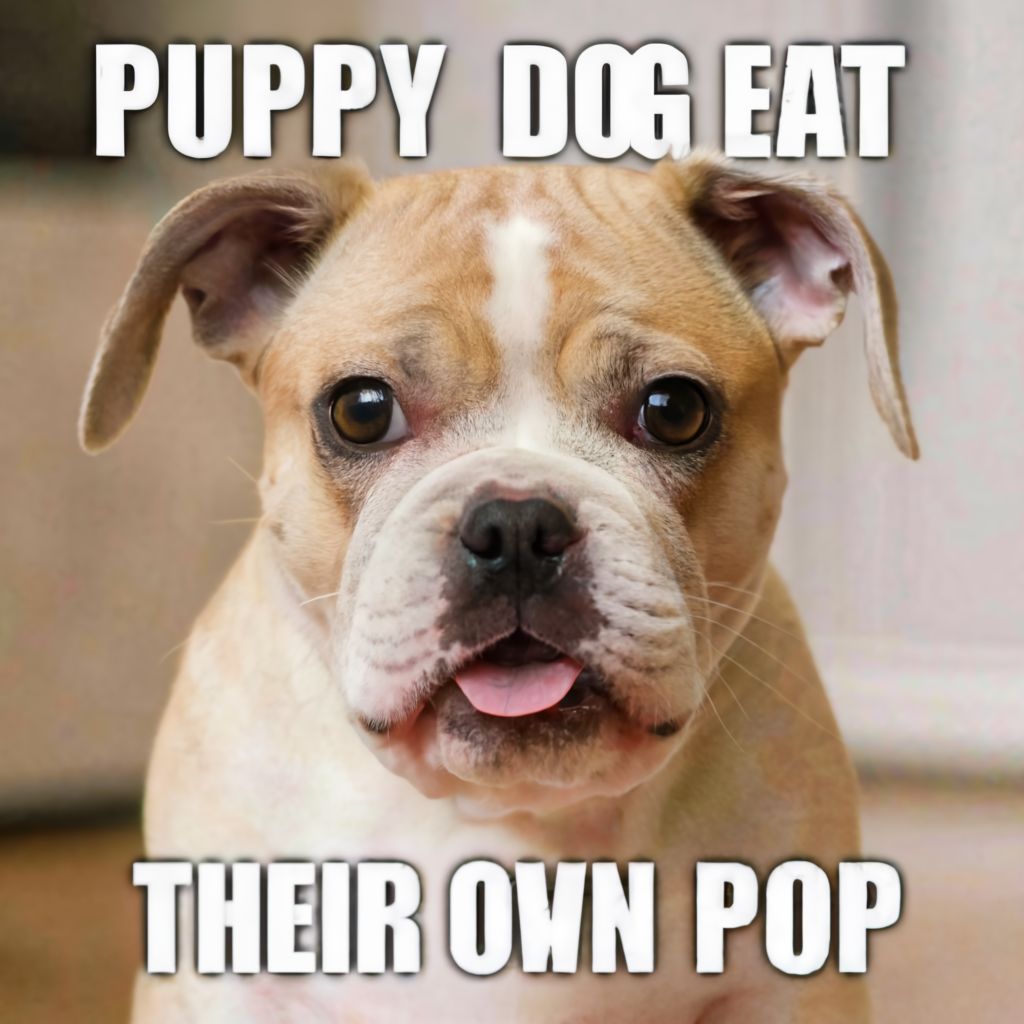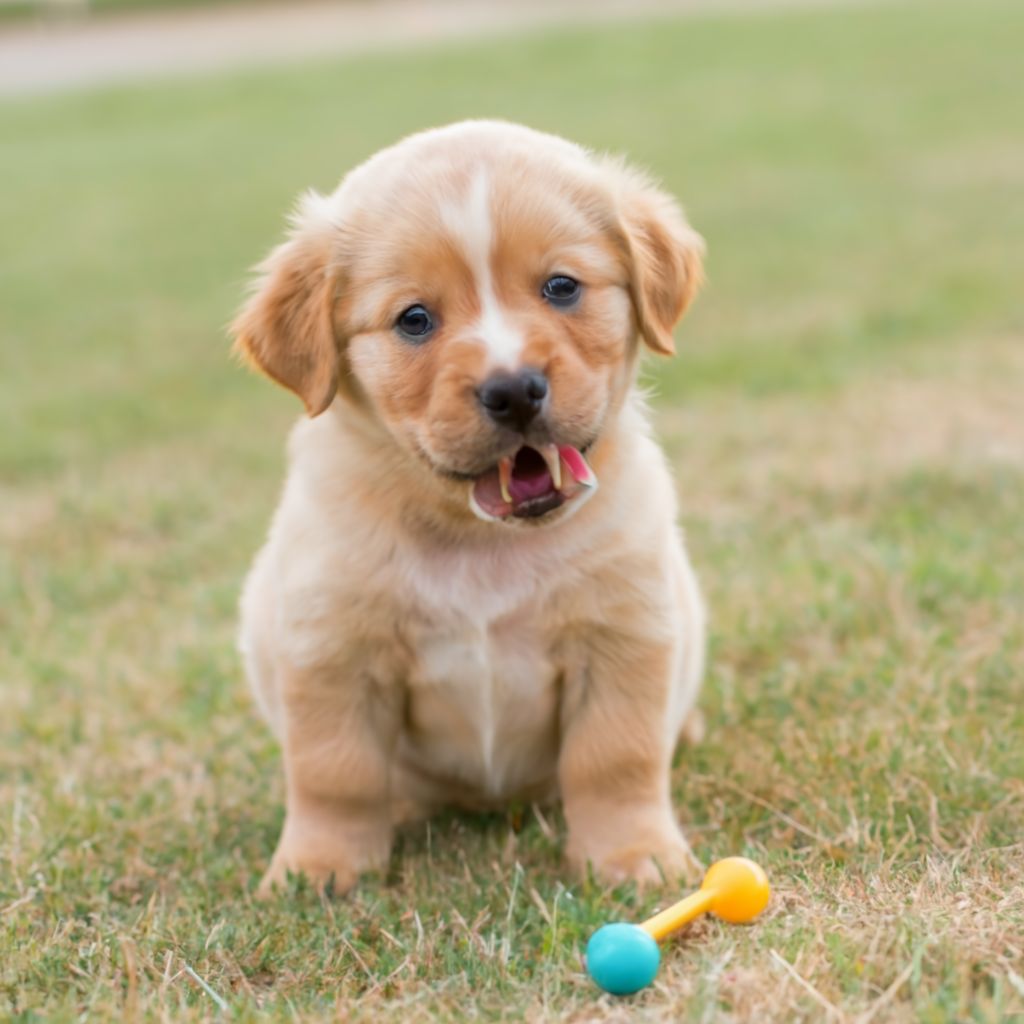Are you a pet owner who has experienced the unthinkable? Your adorable, innocent puppy gobbling up their own poop? It may seem utterly disgusting and even repulsive, but fear not, you are not alone. The consequences of puppies devouring their own waste can be concerning, but understanding the reasons behind this behavior and knowing how to address it are essential for any pet owner. In this article, we will delve into the fascinating world of coprophagia, the scientific term for this unappetizing habit, and discuss why dogs engage in it. From nutritional deficiencies and boredom to instinctual behaviors and medical conditions, we’ll uncover the various factors that contribute to this behavior. Moreover, we will provide practical tips and guidance on how to prevent and manage this behavior to ensure the health and well-being of your furry friend. So, if you’re intrigued and eager to understand why your puppy is turning into a little poop monster, keep reading to discover everything you need to know about this peculiar canine habit.

Understanding why puppies eat their own poop
When you catch your beloved puppy indulging in their own feces, you may be left scratching your head in confusion and disgust. However, it’s important to understand that this behavior, known as coprophagia, is relatively common among dogs, especially puppies. While it may seem revolting to us humans, there are several reasons why puppies engage in this behavior.
One possible reason is that puppies have an instinctual urge to keep their living area clean. In the wild, mother dogs will often eat their puppies’ feces to maintain a clean and safe den. This behavior may be rooted in the puppy’s natural instinct to mimic their mother’s actions. Additionally, puppies may be attracted to the smell and taste of their waste, especially if it still contains undigested food particles.
Another contributing factor to coprophagia in puppies is boredom or a lack of mental stimulation. Puppies are curious and energetic creatures, and if they don’t receive enough mental and physical exercise, they may resort to engaging in behaviors like poop-eating out of sheer boredom. Providing your puppy with plenty of toys, playtime, and mental enrichment activities can help alleviate this issue.
Lastly, some puppies may develop coprophagia due to nutritional deficiencies. If their diet lacks certain nutrients, they may feel compelled to consume their own feces in an attempt to obtain those missing elements. Ensuring that your puppy is on a balanced and nutritious diet is crucial in preventing this behavior. Next, let’s explore the potential health risks associated with puppies eating their own poop.
The potential health risks of puppies eating their own poop
While it may seem disgusting, coprophagia itself is not usually harmful to puppies. However, there are potential health risks that pet owners should be aware of.
One of the main concerns is the transmission of parasites or harmful bacteria. When a puppy consumes their own feces, they may ingest parasites such as roundworms or hookworms that can cause intestinal infections. Additionally, bacteria such as E. coli or Salmonella may be present in the feces, which can lead to gastrointestinal upset or even more severe illnesses. It’s crucial to keep up with your puppy’s deworming schedule and ensure their environment is clean and free from fecal matter to minimize the risk of infection.
Another health risk associated with coprophagia is the potential for nutrient imbalances. If a puppy is eating their own poop, they may not be absorbing and utilizing the nutrients from their diet effectively. This can lead to deficiencies in essential vitamins and minerals, which can impact their overall health and development. It’s important to consult with your veterinarian to ensure your puppy’s diet is nutritionally balanced and meets their specific needs.
Lastly, coprophagia can sometimes be a symptom of an underlying medical condition. Certain gastrointestinal disorders or malabsorption issues can cause puppies to eat their own feces. If you notice persistent or excessive coprophagia in your puppy, it’s advisable to seek veterinary advice to rule out any potential health concerns.
Now that we’ve discussed the potential health risks, let’s move on to effective strategies for preventing puppies from eating their own poop.
How to prevent puppies from eating their own poop
Preventing coprophagia in puppies requires a combination of management strategies, training techniques, and providing a suitable environment. Here are some practical tips to help you prevent your furry friend from turning into a little poop monster:
- Keep the living area clean: Regularly clean up after your puppy to remove feces from their environment. This will reduce the opportunity for them to engage in coprophagia, as well as minimize the risk of infection.
- Supervise outdoor activities: When taking your puppy outside for bathroom breaks or playtime, closely monitor their behavior and intervene if they show any interest in their feces. Use a leash if necessary to prevent them from accessing their waste.
- Maintain a well-balanced diet: Ensure that your puppy is on a high-quality, nutritionally balanced diet that meets their specific nutritional needs. Consult with your veterinarian to determine the best diet for your puppy’s age, breed, and health condition.
- Provide mental and physical stimulation: Boredom and lack of mental stimulation can contribute to coprophagia. Engage your puppy in regular play sessions, provide interactive toys, and consider puzzle feeders to keep their minds occupied.
- Training and redirection: Teach your puppy the “leave it” and “drop it” commands to discourage them from approaching or consuming their feces. Reward them with treats and praise when they respond correctly. Redirect their attention to a more appropriate activity, such as playing with a toy.
- Use deterrents: Some pet stores offer commercial deterrence products that can be sprayed on the feces to make them less appealing to your puppy. Make sure to choose a product that is safe for your puppy and follow the instructions carefully.
By implementing these preventive measures, you can significantly reduce the likelihood of your puppy engaging in coprophagia. However, it’s important to remember that consistency and patience are key when it comes to training and managing this behavior.
Now that we’ve covered prevention strategies, let’s explore some common reasons why puppies eat their own poop.

Common reasons why puppies eat their own poop
Puppies may engage in coprophagia for a variety of reasons. Understanding these underlying factors can help you address the behavior more effectively. Here are some common reasons why puppies eat their own poop:
- Instinctual behavior: As mentioned earlier, puppies may have an instinctual urge to keep their living area clean, mimicking their mother’s behavior in the wild.
- Nutritional deficiencies: If a puppy’s diet lacks essential nutrients, they may be driven to consume their own feces in an attempt to obtain those missing elements.
- Boredom or lack of mental stimulation: Puppies are naturally curious and energetic. If they don’t receive enough mental and physical exercise, they may engage in coprophagia out of boredom.
- Attention-seeking behavior: Some puppies may eat their feces as a way to gain attention from their owners. They may have learned that engaging in this behavior elicits a reaction from their humans, even if it’s a negative one.
- Anxiety or stress: Puppies experiencing anxiety or stress may resort to coprophagia as a coping mechanism. It’s important to address the underlying anxiety or stress and provide appropriate support and training.
- Medical conditions: Certain medical conditions, such as gastrointestinal disorders or malabsorption issues, can contribute to coprophagia in puppies. If you suspect a medical issue, consult with your veterinarian for proper diagnosis and treatment.
Understanding the reasons behind your puppy’s coprophagia can help you tailor your approach to addressing the behavior. Let’s now explore some training techniques that can be effective in discouraging puppies from eating their own poop.
Training techniques to discourage puppies from eating their own poop
Training plays a crucial role in addressing coprophagia in puppies. By using positive reinforcement techniques and consistent training, you can discourage this behavior effectively. Here are some training techniques to help you discourage your puppy from eating their own poop:
- Leave it command: Teach your puppy the “leave it” command, which can be useful in redirecting their attention away from feces. Start by holding a treat in your closed hand and saying “leave it.” When your puppy stops trying to get the treat, reward them with a different treat and praise. Practice this command with various objects, gradually progressing to using feces as the target.
- Drop it command: Similar to the “leave it” command, teaching your puppy the “drop it” command can be helpful in discouraging them from picking up feces. Begin by offering your puppy a toy and saying “take it.” Once they have the toy in their mouth, say “drop it” and offer a high-value treat as a reward when they release the toy.
- Reward-based training: Whenever you catch your puppy ignoring or avoiding their feces, shower them with praise, treats, and affection. Positive reinforcement helps reinforce desired behaviors and encourages your puppy to repeat them.
- Consistency and supervision: Supervise your puppy closely during bathroom breaks and outdoor activities. If they show any interest in their feces, use the “leave it” command and redirect their attention to a more appropriate activity.
- Enroll in obedience classes: If you’re struggling to address coprophagia on your own, consider enrolling your puppy in obedience classes. Professional trainers can provide guidance and tailor training techniques to your puppy’s specific needs.
Remember, training takes time and patience. Consistency is key, and it’s important to remain calm and avoid punishment-based training methods, as they can be counterproductive and harmful to your puppy’s well-being.
Now that we’ve covered training techniques, let’s address some common misconceptions about puppies eating their own poop.
Common misconceptions about puppies eating their own poop
Coprophagia in puppies can be a perplexing behavior for pet owners, leading to various misconceptions. Let’s debunk some of these common misconceptions and provide accurate information:
- Puppies eat their poop because they are hungry: While nutritional deficiencies can contribute to coprophagia, it’s important to note that puppies engaging in this behavior are not necessarily hungry. It’s more likely due to instinctual, behavioral, or medical reasons.
- Puppies eat their poop to spite their owners: Contrary to popular belief, puppies do not engage in coprophagia as a form of revenge or to upset their owners. It is a behavior influenced by various factors, and punishment-based approaches are unlikely to be effective.
- Puppies will outgrow coprophagia on their own: While some puppies may naturally outgrow coprophagia as they mature, it’s not a behavior that should be ignored or left untreated. Addressing the underlying causes and implementing preventive measures is crucial for their overall health and well-being.
- Coprophagia is a sign of a bad or poorly trained puppy: Coprophagia is not necessarily an indication of a poorly trained or misbehaved puppy. It can occur even in well-trained dogs and is often influenced by factors beyond their control, such as instinctual behaviors or medical conditions.
- Using punishment will stop coprophagia: Punishing your puppy for engaging in coprophagia is not recommended. It can create fear and anxiety, potentially exacerbating the behavior or causing other behavioral issues. Positive reinforcement and consistent training techniques are more effective and humane.
By debunking these misconceptions, we can better understand coprophagia as a complex behavior influenced by various factors. However, it’s important to know when seeking veterinary help is necessary.
When to seek veterinary help for puppies who eat their own poop
While coprophagia is often a harmless behavior in puppies, there are instances where veterinary intervention may be necessary. Here are some situations when it’s advisable to seek veterinary help:
- Excessive or persistent coprophagia: If your puppy’s coprophagia is excessive or persists despite your efforts to address it, it’s important to consult with your veterinarian. This could indicate an underlying medical condition or behavioral issue that requires professional evaluation.
- Visible signs of distress or illness: If your puppy displays signs of discomfort, distress, or illness after consuming feces, it’s crucial to seek veterinary attention immediately. These signs may include vomiting, diarrhea, lethargy, loss of appetite, or abnormal behavior.
- Presence of parasites or infectious diseases: If your puppy’s feces contain visible worms or if they develop symptoms of a parasitic or infectious disease, such as weight loss, poor coat condition, or persistent diarrhea, it’s essential to have them examined by a veterinarian for diagnosis and appropriate treatment.
- Concerns about dietary adequacy: If you suspect that your puppy’s diet is inadequate or contributing to their sarcophagi, consult with your veterinarian to evaluate their nutritional needs and consider dietary adjustments or supplements.
Your veterinarian is the best resource for diagnosing any underlying medical conditions and providing guidance tailored to your puppy’s specific needs. Don’t hesitate to reach out for professional help if you have concerns about your puppy’s coprophagia.
Nutritional considerations for puppies who eat their own poop
As mentioned earlier, nutritional deficiencies can contribute to coprophagia in puppies. Ensuring that your puppy is on a well-balanced diet is crucial for their overall health and can help prevent this behavior. Here are some nutritional considerations to keep in mind:
- Choose a high-quality puppy food: Opt for a high-quality commercial puppy food that is appropriate for your puppy’s age, breed, and size. Look for brands that meet the nutritional standards set by reputable organizations, such as the Association of American Feed Control Officials (AAFCO).
- Consult with your veterinarian: Your veterinarian can provide guidance on selecting the right puppy food and help you determine if any dietary adjustments or supplements are necessary. They can also address any concerns you may have about your puppy’s diet and sarcophagi.
- Avoid feeding table scraps: While it can be tempting to share your food with your puppy, it’s important to avoid feeding them table scraps. Human food may not provide the necessary nutrients for your puppy, and certain ingredients can be harmful or toxic.
- Consider supplements: In some cases, your



